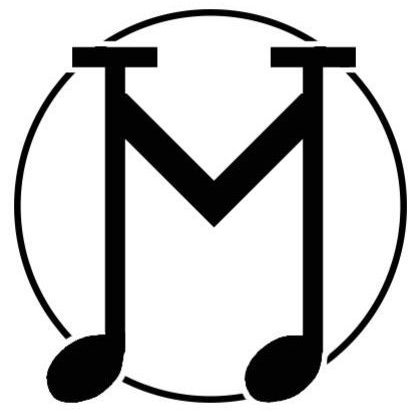Challenging systems of oppression is a responsibility that everyone carries. Theatre has a history of oppression and discrimination towards people of colour, (dis)abilities, and the LGBTQIAS2+ community. The UBC Musical Theatre Troupe’s original mission statement is to “provide accessible musical theatre opportunities for the UBC community.” Today, we would like to propose an amendment. From now on, our mission is that “We are fully committed to making our theatre space accessible, diverse, and inclusive, where those with marginalized identities feel heard, seen, included, and can shine.”
We have recently added a new executive position, Vice President of Equity Diversity and Inclusion, to our executive team. We as an executive team collaborated and came up with the EDI goals we want to achieve over a two year period, starting October 2023 to December 2025. We are committed to achieving significant improvements through the following EDI goals:
- Increase racial diversity of the crew, cast, band, creative and executive teams. The theatre industry historically continues to marginalize people of colour. The number of Black Broadway producers can be counted on two hands. The number of Asian and Latino/producers can be counted on one hand. Broadway comprises 41 theatres, all managed by White people (Seymour, 2021). This is only one of many examples of the industries being white-dominated. While we recognize that we are not Broadway, there still needs to be more racial diversity in our club. Challenging these continuing notions of racial inequity is essential. Here is how:
- We are training our executives yearly in hiring equity. Therefore, when our administrative team employs the creative team, we know the best way to go about race, gender/sexuality, and disability—leading to a more diverse, innovative team. Hiring equity workshops will also be developed for the creative team to improve our cast, crew and band’s diversity. For hiring equity practices this year, we are using the Hiring Equity Course affiliated with UBC Equity and Inclusion. The link can be found here.
- Reaching out to student organizations such as, but not limited to, the Black Student Union, Arab Student Association, and Disability United Collective during hiring times, such as auditions and creative team hiring, to let them know we would love to have them as part of our club.
Measuring our progress will be achieved through tracking racial diversity by semester.
2. Increase EDI Educational Opportunities and Awareness. In the spirit of transparency, our club must do better at becoming comfortable discussing topics of social justice and EDI. Right now, there is a pattern of not speaking up about EDI issues for fear of hurting someone’s feelings. MTT recognizes that challenging systemic issues takes everyone, regardless of one’s social positionality. Being an Ally does not just mean listening to those who have been marginalized; it is a willingness to act and speak up, too. The latter part is an area in our club culture that must improve. Suppose someone does not feel like they’re supported in some way. In that case, we want them to feel like they can speak up about it, and others will help them, which means getting comfortable with talking about EDI. Here is how:
- EDI training for all executive and creative team members. This means becoming familiar with anti-racism, what it means to be a good ally and recognizing your positionality and how that affects your position. The program we will be using can be found here.
- Ensure members have a safe feedback platform. Those facing EDI concerns can anonymously talk to our VP Internal or our VP EDI. The matter will stay confidential or be discussed more extensively, depending on how that person would like the case handled.
- We are regularly encouraging conversations about EDI during rehearsal spaces. During our first read-throughs of each respective production, we will make the space to discuss how theatre has impacted one’s positionality for those who consent to do so.
Our progress will be measured based on survey forms that will distributed to the creative/executive teams after EDI training and periodically throughout the year to gauge peoples ability to hold EDI discussions.
3. Increase Social Justice Accessibility. The impact that the Arts have on social justice is grand, as it truly and significantly affects how people think about social justice and influences the creation of a feeling of belonging. Under this goal, we strive to ensure there is access to understand the powerful effects that come from the intersection of social justice and the Arts. Under our accessibility goal, we also want to increase the physical accessibility for those with disabilities in the club. Most of these goals will take place on social media. Here is how:
- Increase the number of social media posts and marketing around only holding events and rehearsals in wheelchair-accessible rooms.
- Bi-monthly post about theatre and social justice. This will look like anything from a spotlighted BIPOC artist to information on oppression within theatre.
- Increased number of events focused on topics that center around race, gender, disability, sexuality and the performing arts industry. For example, holding an event in February dedicated to Black History Month, screening of Indigenous films, Events based on Pride and Disability Pride.
Our progress will be measured based on the number of social media posts dedicated to EDI and social justice, and turnout at events.
Thank you for taking the time to read our two year plan. If you have any questions, comments or concerns, please feel free to reach out to our VP EDI – Katarina Swetlikoff at UBCMTTEDI@gmail.com
Written by Katarina Swetlikoff, VP EDI
Work Cited
Seymour, Lee. “‘We’re Not Going Back’: Inside Broadway’s Racial Reckoning.” Forbes, 28 Apr. 2021, www.forbes.com/sites/leeseymour/2021/04/28/were-not-going-back-inside-broadways-racial-reckoning/?sh=3d82ef6da60c.
